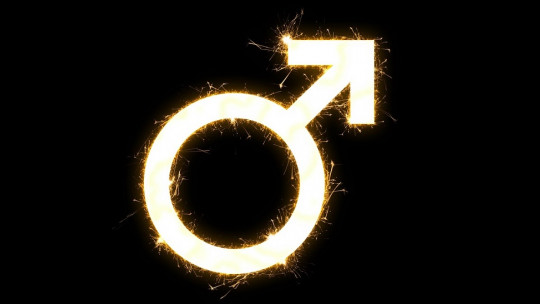
Between the ages of 40 and 50, some women face a delicate moment in their lives, known as “midlife crisis” This crisis is seen as a moment when we realize that life is finite. It is a moment of transition in the lives of women who may also be experiencing menopause, a deterioration in physical appearance, empty nest syndrome, a separation, etc. Each person reacts differently to this “crisis”. Some women overcome it, others try to defy aging with medical interventions…
But we must interpret this crisis as a wake-up call to realize that there is more life and that it is time to face it and not get caught up in the past and the things we could have done but did not do. Do you want to live only on the memories of your past and spend your time repenting or do you want to focus on the life you have left to live and do it fully? In this PsychologyFor article we tell you some of the signs of the crisis of 40 in women
Symptoms of the midlife crisis in women
To know if you have a 40-year crisis, it is important to learn to detect some of the most common symptoms of this situation. Here we discover the most common ones:
You ask yourself deep and probing questions
One of the things that can help us identify the crisis is the negative feeling towards the life you lead When you reach middle age there is a tendency to stop when you know and wonder if this is the right path. It’s about making a comparison between where you wanted to be in life at that moment and where you really are. After carrying out this evaluation, you may realize that you have been following the dreams or objectives that your parents have proposed to you, that is, you have simply done what was expected of you.
It must be taken into account that These phases of self-reflection are positive because they allow us to eliminate or correct those things that we do not like. A 2016 study showed that people experiencing a quarterly or midlife crisis and focusing on their life goals are likely to find creative solutions to their challenges. And these solutions can help the person get out of the crisis, by incorporating new things into their life.
You make hasty decisions
In these continuous evaluations of your life, you may discover that you are not satisfied with your marriage, your job, etc. And it is dangerous when we make decisions impulsively based on the feelings of that particular moment. Acting before thinking about the possible long-term consequences of each decision can lead to great regret.
You feel like you’re losing your mind
It is common for women who go through this crisis to say: “I feel like I’m going crazy”, “I can’t remember where I left things”, “I don’t know why I entered the room”, “I’m angry all the time”. .. This sudden change in certain personality characteristics may be due to a decrease in estrogen levels, which can begin 5 to 10 years before menopause. Furthermore, for some women, menopause carries a great stigma.
You can’t sleep at night
If you wake up in the middle of the night it may be related to hormonal levels. Even if you still have your period, the decrease in estrogen and testosterone can cause changes in you. In fact, there are studies indicating that decreasing levels of estrogen during perimenopause and menopause can make a woman more susceptible to environmental and other factors, which can further disrupt sleep and lead to insomnia. In this other article we discover the insomnia treatment so you can solve this situation.
You are constantly bored
Boredom can be a sign of a midlife crisis in women. You may feel stuck in a routine, where the opportunity to have fun is no longer available. A possible solution is to do something out of your routine that you enjoy: listening to music, playing sports, dance classes, etc.
You have an overwhelming feeling of loss
You may have the feeling that There is something in your life that has escaped During this crisis there is a certain degree of loss, although not to the level of clinical depression. The loss of dreams or the idea of who they wanted to be is a confrontation with reality that can cause great disappointment in people. If you have achieved all your goals, you may be asking yourself the question “what now?”
Problems with the physique
Looking in the mirror to feel good and take care of yourself is something normal and healthy, but spending hours looking in the mirror to notice wrinkles and other changes associated with old age is not so normal. Some people may go to extremes to try to achieve a youthful appearance again. Some women even go so far as to ruin themselves to prevent or stop seeing the inevitable changes of age. While there are some women who in this crisis They are obsessed with perfecting their physical appearance, Others may deny themselves a modicum of self-care, similar to what can occur in the case of depression.
You think there is nothing more to expect from life
Women who are going through the crisis of 40 feel that they are older than their actual age. One study found that feeling older predicts lower psychological well-being and lower life satisfaction compared to those with more favorable attitudes about aging.
Something we have to do as a society is ask ourselves if this negative narrative of feeling older derives from their environment, that is, do society or their immediate environment treat them as if they were older or is it a cultural pattern that has been internalized by some of them? these women?
You feel like the best of your life has already passed
Believing that all the events and good things have already happened in your life and will not happen again may be a sign that you are going through a midlife crisis. This thinking is widespread in our culture. The good thing is that this has been changing and we can see how people can have the best moments of their lives as they age, since enjoyment is no longer so related to the years and is more related to personal gratification.

9 tips to overcome the crisis of 40
Some tips that can help you overcome the crisis of 40 in women are:
- You must face the crisis and don’t try to hide that you are 40 years old
- Spend some time self-reflecting, if necessary see a therapist
- Don’t wait for the crisis to fully unfold. Try to change little by little those things that you don’t like.
- Try doing something different sometime, get out of the routine because doing the same thing every day is not good
- Do outdoor activities When we leave home we get a different perspective on the problem
- Interpret the crisis as an opportunity for change and to start something new
- Take into account the positive aspects that age provides you: wisdom, experience and knowledge
- Instead of asking you This is all there is? Ask yourself What am I ready to change?
- Forget about everything that stops you or no longer serves you in life. You just have to take it into account to decide what you are going to do to change it.
Reflections on age crises
- In the event that the woman has sexual problems There are treatments available, both hormonal and non-hormonal, to treat all symptoms associated with sexual pain.
- Thinking of yourself as a young person may seem silly to you, but this type of thinking has become advisable. A 2016 Florida State University study found that many middle-aged and older women maintain youthful perceptions of themselves to improve their emotional well-being.
- As a society perhaps we should try to find a “older woman” model ” that can serve as motivation. It is about changing our thoughts and prejudices towards old age in women.

This article is merely informative, at PsychologyFor we do not have the power to make a diagnosis or recommend a treatment. We invite you to go to a psychologist to treat your particular case.
If you want to read more articles similar to Crisis of 40 in women we recommend that you enter our Social Psychology category.








